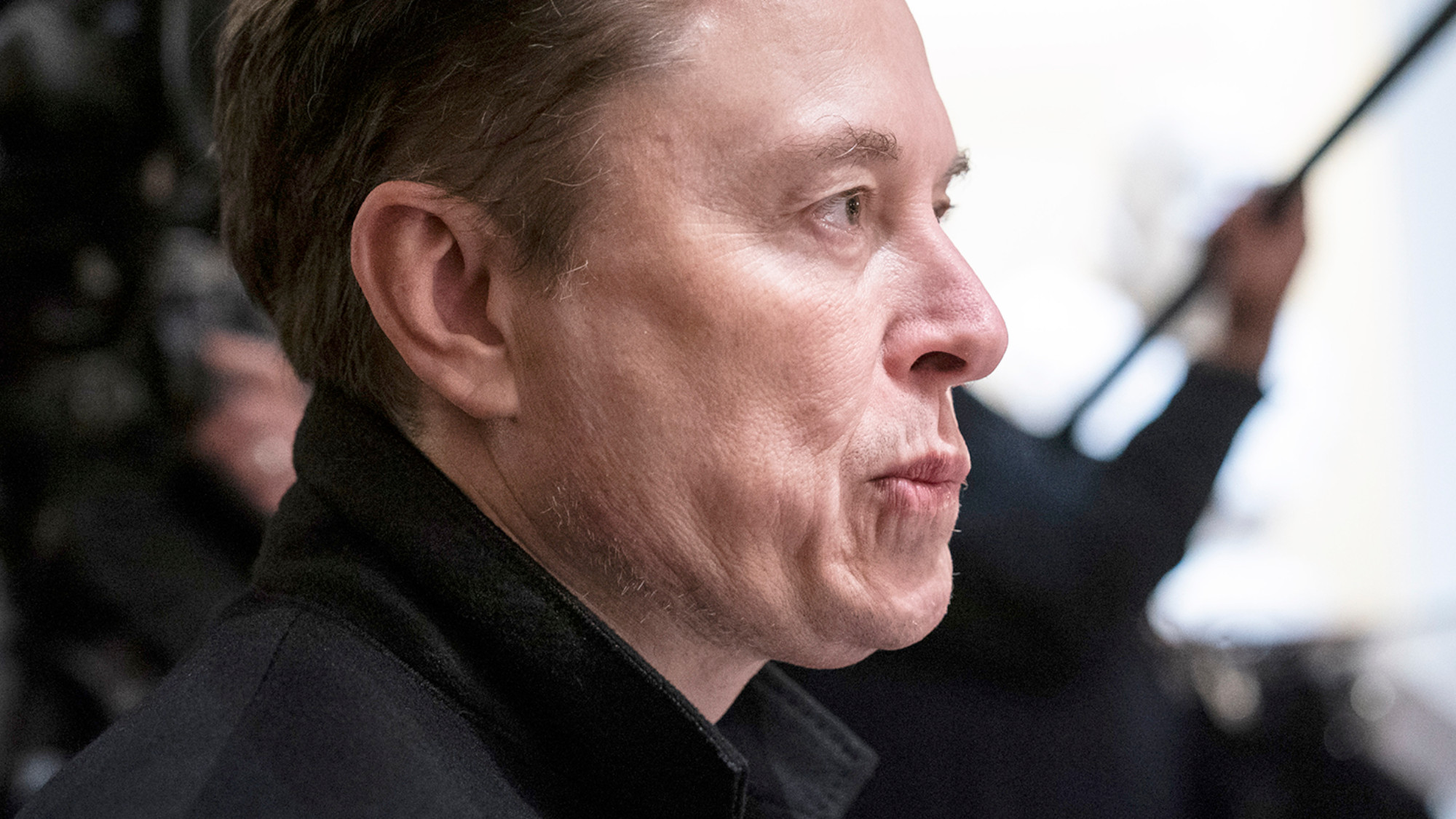Musk: What did he accomplish with DOGE?
The billionaire steps back from DOGE after slashing federal jobs and services

A free daily email with the biggest news stories of the day – and the best features from TheWeek.com
You are now subscribed
Your newsletter sign-up was successful
Only two months ago, "the world's richest person seemed unstoppable," said David Smith in The Guardian. Now Elon Musk is "hanging up his chain saw." White House chief of staff Susie Wiles confirmed this week that the billionaire is "not physically present as much as he was" during his first months leading President Trump's Department of Government Efficiency. And the Tesla CEO recently announced that he'll spend less time on DOGE as he refocuses on rescuing his car company, which saw profits plunge 71 percent in the first quarter amid a backlash over his gleeful assault on government. But even harder to undo will be the "devastating" human toll of DOGE. The project fired or forced out more than 260,000 federal workers, deleted humanitarian aid for millions of desperate people overseas, and scrapped more than $2 billion in biomedical research grants. And for what? asked Zeeshan Aleem in MSNBC.com. Musk originally promised he'd save taxpayers $2 trillion, a total he's since lowered to $150 billion. But even if his numbers are correct—which they frequently aren't—research suggests those savings will be outweighed by the cost of DOGE-related firings, rehirings, and court battles, and by a substantial drop in tax collection from a shrunken IRS. Whatever one thought of Musk's "cost-cutting crusade" at its outset, surely no one wanted this result: "a worse government at roughly the same cost."
For anyone hoping Musk would single-handedly erase the extra $2.5 trillion added to the deficit by the Biden administration, DOGE has been "a massive letdown," said Christian Britschgi in Reason. But compared with the unchecked spending likely under a President Kamala Harris, DOGE was a "smashing success," fulfilling its pledge to "shrink the federal workforce" and reduce regulatory sprawl. "I don't blame Musk one bit" for stepping back, said Ingrid Jacques in USA Today. As leftists vandalize Cybertrucks and firebomb Tesla dealerships—with hardly a peep of condemnation from elected Democrats—it may be the only way Musk can save his company. The rest of us should "thank him, not hate him," for trying to save America from fiscal ruin.
Musk tried nothing of the sort, said Jessica Riedl in the New York Post. The federal budget is indeed full of waste—from overlapping education programs to overbudget defense procurements. But Musk had no appetite for the "quiet, boring work of deficit reduction." He pursued vendettas against foreign aid, staffers' Politico subscriptions, and similar "high-profile culture-war targets" rather than dig into Social Security and other mandatory programs that consume three-quarters of federal spending. Musk's baby-faced operatives did succeed in "grabbing" troves of Americans' personal data from multiple government agencies, said Julia Angwin in The New York Times. That information is now being merged at the Department of Homeland Security into "a sprawling domestic surveillance system—the likes of which we have never seen in the U.S."
The Week
Escape your echo chamber. Get the facts behind the news, plus analysis from multiple perspectives.

Sign up for The Week's Free Newsletters
From our morning news briefing to a weekly Good News Newsletter, get the best of The Week delivered directly to your inbox.
From our morning news briefing to a weekly Good News Newsletter, get the best of The Week delivered directly to your inbox.
DOGE no longer needs its "turbulent creator," said Ed Kilgore in New York magazine. Its "employees are now routinely 'embedded' in federal agencies," and leadership of the assault on the federal bureaucracy is expected to pass to Russell Vought, director of Trump's Office of Management and Budget. The Project 2025 co-author and self-declared Christian nationalist shares Musk's loathing of the "Deep State" but will be cannier and more methodical in effecting its destruction. The soft-spoken Vought will never match Musk's "cartoon-villain malevolence," but his "dull knife will cut even deeper than Musk's chain saw, and a lot less noisily."
A free daily email with the biggest news stories of the day – and the best features from TheWeek.com
-
 The ‘ravenous’ demand for Cornish minerals
The ‘ravenous’ demand for Cornish mineralsUnder the Radar Growing need for critical minerals to power tech has intensified ‘appetite’ for lithium, which could be a ‘huge boon’ for local economy
-
 Why are election experts taking Trump’s midterm threats seriously?
Why are election experts taking Trump’s midterm threats seriously?IN THE SPOTLIGHT As the president muses about polling place deployments and a centralized electoral system aimed at one-party control, lawmakers are taking this administration at its word
-
 ‘Restaurateurs have become millionaires’
‘Restaurateurs have become millionaires’Instant Opinion Opinion, comment and editorials of the day
-
 Democrats push for ICE accountability
Democrats push for ICE accountabilityFeature U.S. citizens shot and violently detained by immigration agents testify at Capitol Hill hearing
-
 Fulton County: A dress rehearsal for election theft?
Fulton County: A dress rehearsal for election theft?Feature Director of National Intelligence Tulsi Gabbard is Trump's de facto ‘voter fraud’ czar
-
 ‘Melania’: A film about nothing
‘Melania’: A film about nothingFeature Not telling all
-
 Greenland: The lasting damage of Trump’s tantrum
Greenland: The lasting damage of Trump’s tantrumFeature His desire for Greenland has seemingly faded away
-
 Minneapolis: The power of a boy’s photo
Minneapolis: The power of a boy’s photoFeature An image of Liam Conejo Ramos being detained lit up social media
-
 The price of forgiveness
The price of forgivenessFeature Trump’s unprecedented use of pardons has turned clemency into a big business.
-
 The ‘mad king’: has Trump finally lost it?
The ‘mad king’: has Trump finally lost it?Talking Point Rambling speeches, wind turbine obsession, and an ‘unhinged’ letter to Norway’s prime minister have caused concern whether the rest of his term is ‘sustainable’
-
 ICE: Now a lawless agency?
ICE: Now a lawless agency?Feature Polls show Americans do not approve of ICE tactics